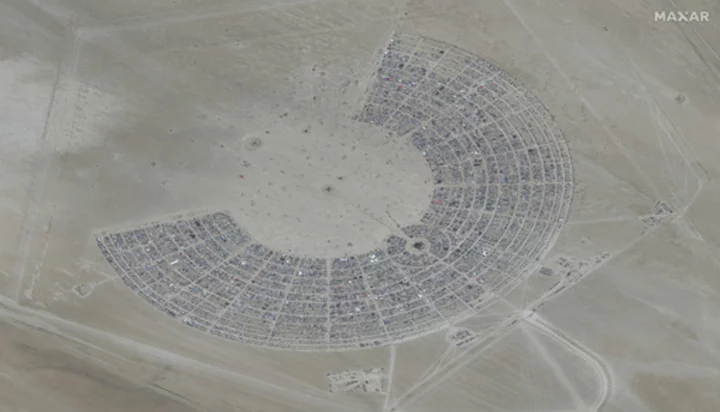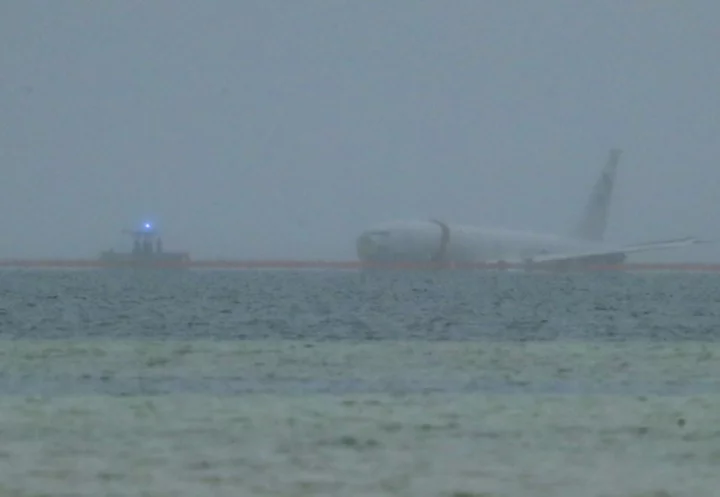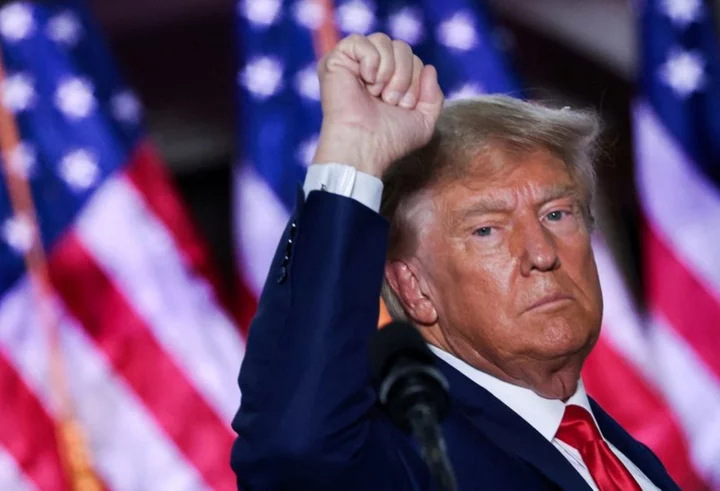Azerbaijan has taken advantage of a ripe political moment to bring the breakaway region of Nagorno-Karabakh back under its control, experts say.
President Ilham Aliyev declared victory on Wednesday after separatist Armenian fighters agreed to lay down their arms in the face of Azerbaijan's military operation.
It came with Armenia weakened and isolated, the West looking the other way and in need of Azeri gas, and Russia preoccupied with Ukraine, analysts say.
- What's the context? -
The small mountainous enclave, which the international community recognises as part of gas-rich Azerbaijan, is inhabited mainly by Armenians and has been at the heart of a long-running conflict between Baku and Yerevan.
It has been at the centre of two wars since the collapse of the Soviet Union, from 1988 to 1994 and again in 2020.
Armenia suffered a crushing defeat in the 2020 war, with Azerbaijan regaining control of regions around Nagorno-Karabakh, and some parts of the enclave.
"Azerbaijan clearly intends to put an end to the current situation," said Marie Dumoulin of the European Council on Foreign Relations (ECFR).
After its defeat three years ago, Armenia wanted talks on the status of the enclave and the rights of its inhabitants.
"Baku is evidently not ready to negotiate on this issue, which it considers an internal matter," said Dumoulin.
"From the Azerbaijani point of view, it is one region among others and its population should not benefit from different rights."
In May, Prime Minister Nikol Pashinyan said Armenia recognised Nagorno-Karabakh as part of Azerbaijan.
But Tigrane Yegavian, a researcher at the Institute of Eastern Christians (ICO), warned that Nagorno-Karabakh's Armenian inhabitants would have to "choose between packing their bags or dying".
Baku insists Armenians and Azerbaijanis can live alongside each other on good terms.
- Why now? -
The attack "follows nine months of (Azerbaijan) blocking access to the territory, a blockade that grew in severity since mid-June," Laurence Broers of the Chatham House think tank wrote on X, formerly Twitter.
"The Karabakh Armenian population is physically weakened, food and medicine are lacking," he said.
"Azerbaijan is plucking Nagorno-Karabakh like a ripe fruit," said Yegavian, who said there would be "no status of cultural autonomy" for its Armenian inhabitants.
Baku has made the most of a favourable political climate to launch its attack. It has the strong support of Turkey, while Russia, the traditional heavyweight in the Caucasus and Armenia's ally, is busy with its war in Ukraine.
"Moscow is no doubt no longer in a position to play its role as arbiter, and now needs Azerbaijan more than ever, not least because it is through Azerbaijan that arms from Iran transit" to Russia, said Dumoulin.
"Russia has neither the will nor the capacity to support the Armenian (separatist) government in Karabakh," said Kirill Shamiev of the European Council on Foreign Relations.
The EU meanwhile has been striving since the start of the war in Ukraine to reduce its dependence on Russian energy supplies and signed a gas agreement with Baku in 2022.
Europe has "probably been inclined to turn a blind eye", Dumoulin said.
- What next? -
For now, a new war between Armenia and Azerbaijan seems to have been ruled out -- Armenian Prime Minister Nikol Pashinyan has expressed his determination to keep his country out of the conflict.
But this policy is highly contested in Armenia itself, where Pashinyan is accused of having "sacrificed" Nagorno-Karabakh, and furious demonstrators gathered in the capital to call him a "traitor" and demand his resignation.
Aliyev said Wednesday that Azerbaijan "recognises Armenia's territorial integrity" and has no territorial claims. But some experts worry that Baku could seek to push its advantage and drive into southern Armenia to create a land bridge to the Azerbaijani enclave of Nakhchivan inside its neighbour.
"Armenia would then be forced to go to war," said Dumoulin, who also warned of "a real risk of escalation" in this region bordering Iran.
cf-mdr-vi/lcm/fg









